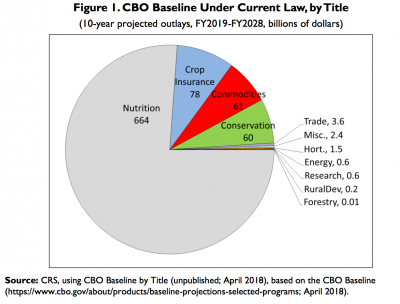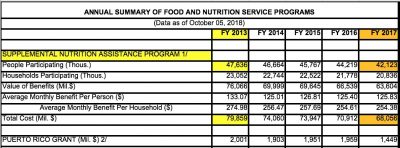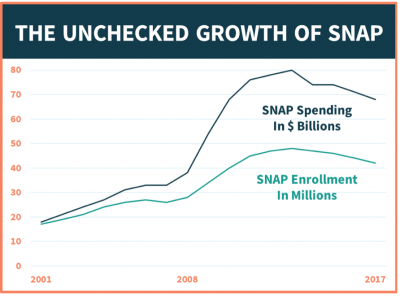The Agriculture Department has finalized some revisions to two major farm commodity programs, including rules for adding new base acres, but signup for the programs won’t be scheduled until after…
Post Election: Farm Bill Perspective From House Ag Committee Chair-elect Collin Peterson
House Ag Committee Chair-elect Collin Peterson (D., Minn.) was a guest on Thursday’s “Adams on Agriculture” radio show with Mike Adams. Today’s update includes perspective on the status of the Farm Bill legislation from Rep. Peterson, as well as other recent news items discussing the Conference Committee’s progress.
House Ag Committee Chair-elect Peterson
At the beginning of the “Adams on Agriculture” interview (audio replay here (MP3- 7:14); unofficial FarmPolicyNews transcript here) Rep. Peterson stated that,
Well, my first thing is getting this farm bill done. That is my only one priority right now. I’m focused on that totally. I’m not worried about anything else. Let’s get this thing done. So I talked to the secretary on Tuesday night. I talked to Mr. Conaway yesterday. And we’re going to get together next Monday, Mike and I, and, you know, I want to get this thing wrapped up. All of the issues are out there. They’re drafted, they’re scored. It’s just a matter of making the decisions as to what’s going to be in the final bill. And we need to get this done as soon as possible.
Rep. Peterson added that, “I just think that the things that are being discussed now are kind of relatively small in the whole scheme of things, and I don’t see why we can’t resolve this.”
With respect to SNAP (food stamps), Rep. Peterson indicated that, “The problem is not that we don’t have work requirements. We’ve had them since ’96. The problem is we’ve given out all these waivers, and it’s been given out by Republican and Democrat administrations to Republican and Democrat governors, so everybody’s culpable here. And if people aren’t working, it’s primarily because of that.”

Mr. Adams asked, “Other than the SNAP program and the worker requirements, do you feel you have consensus on the other issues, conservation and those other issues?”
Rep. Peterson noted that, “Well, not completely. There’s still some going back and forth. But I don’t think what we’re arguing about is worth holding anything up, so I’ve been pushing to try to get this done this week,” and added: “I don’t want this farm bill to be on my plate when I become the chairman. I don’t want that. I want it done. And the farmers want it done. And so let’s do it.”
Since portions of the current Farm Bill expired at the end of September, the interview touched on the possibility of extending the legislation.
Rep. Peterson explained that, “But if we’re not going to get this done by the end of the year, then I think we have to talk about an extension.
And if that’s the case, an extension is almost as big of a problem as getting the bill done. It’s not going to be a slam dunk.
“There’s going to be people bringing things to the table and so forth. Who knows what it’ll get tangled up in? It’s just not a good… You know, nobody’s talking, we haven’t talked extension at all amongst us because none of us want that. But if that…if worst came to worst, you either do that or we’re back to ’49 law.”
And on a separate issue regarding the new NAFTA agreement, or USMCA, Rep. Peterson stated that, “I have looked at it enough to tell you that I’m going to vote for it. And I’ve told some of our leadership that I’m for it, like I’ve told Pelosi and I’ve told some others that I think it’s not a bad deal. I don’t think we… In agriculture it’s no huge win. It’s basically status quo. But at least we didn’t get hurt. So I consider that a win. And I intend to vote for it. But whether it’s going to be done or not, I don’t know.”
Additional Articles and Perspective
Associated Press writer Steve Karnowski reported Friday that, “Prospects have improved for Congress to pass a bipartisan farm bill before the end of the year after Democrats secured the House majority during the midterm elections, key lawmakers and other experts said.”
“Observers say it’s likely that House Republicans will now be ready to pass a compromise in the upcoming lame duck session rather than starting over in a Democratic-controlled House and risking a result they would like even less,” the AP article said.
Mr. Karnowski noted that, “Senate Majority Leader Mitch McConnell said a news conference Friday in Frankfort, Kentucky, that passing a farm bill is one of his top priorities for the lame duck session, too. McConnell, who like Peterson is on the conference committee that’s trying to work out a final deal, said compromise on work requirements is needed.
“‘That’s the part that is a little tricky, but we’ll get there,’ McConnell said.”
On @BloombergTV, @senatemajldr notes in part that, "...we need to finish a #FarmBill..." pic.twitter.com/AM5t8Lx66v
— Farm Policy (@FarmPolicy) November 7, 2018
DTN Ag Policy Editor Chris Clayton reported Wednesday that, “President Donald Trump, in a White House news conference Wednesday, was asked about the farm bill, which he said ‘is working really well.’ But the president also complained about Democrats delaying the farm bill because, ‘Democrats are not giving us the 10 votes we need. The democrats are not approving the farm bill with work rules.’ Trump was pointing to contention over work requirements for people on Supplemental Nutrition Assistance Program (SNAP) aid.
On @BloombergTV, @realDonaldTrump notes that, Democrats holding up the #FarmBill due to work requirements... pic.twitter.com/akK3vrxz7n
— Farm Policy (@FarmPolicy) November 7, 2018
“[Rep.] Peterson said he talked with House Minority Leader Nancy Pelosi a couple of days ago, and she indicated to him that she wants to work on a bipartisan basis to get the farm bill done, as well as work on an infrastructure package and areas such as ethics reform.”
Mr. Clayton pointed out that, “The House bill shifts some base acre payments away from land that has not been planted in the past decade — largely affecting wheat acres converted to pasture — and uses the funds to boost payments largely to cotton acres that have been hit with persistent drought. The changes in the House bill would lead to a net benefit for cotton producers of $438 million over 10 years, but it is opposed by Senate Ag Chairman Pat Roberts, R-Kan., whose state would lose base acres as a result.
“‘This is an issue between the two chairmen,’ Peterson said, adding he thinks the issue will be resolved.”
And Reuters writer Humeyra Pamuk reported last week that, “Food stamps are used by more than 40 million Americans, or about 12 percent of the total U.S. population, and the program’s inclusion in the Farm Bill has long been used as a way to get support from Democrats who represent urban districts.
“Trump in mid-September accused Democratic lawmakers who opposed the restrictions on the program of stalling the bill.”

Meanwhile, an update on Friday from the House Budget Committee stated that, “In 2002, 19 million – or one in 15 – Americans received SNAP benefits. Today, that figure has more than doubled to 40 million – or one in eight – Americans. Since 2008, spending on the SNAP program has grown from $39 billion to $69 billion and, over the next 10 years, it is already projected to cost the Federal Government $664 billion.”

Friday’s release noted that, “The goal of anti-poverty programs should be to encourage work and lift Americans out of poverty. The House-passed Farm Bill would achieve this goal and reform the SNAP program by strengthening work activity requirements for able-bodied adults without children under six years of age. Participation in the SNAP Employment and Training Program would fulfill the work requirement, and the House-passed Farm Bill would guarantee everyone access to this training program. Rather than encouraging dependence on the welfare system, Congress should work to ensure more sustainable, self-sufficient outcomes for SNAP recipients by pairing reformed work requirements with consistent enforcement.”





